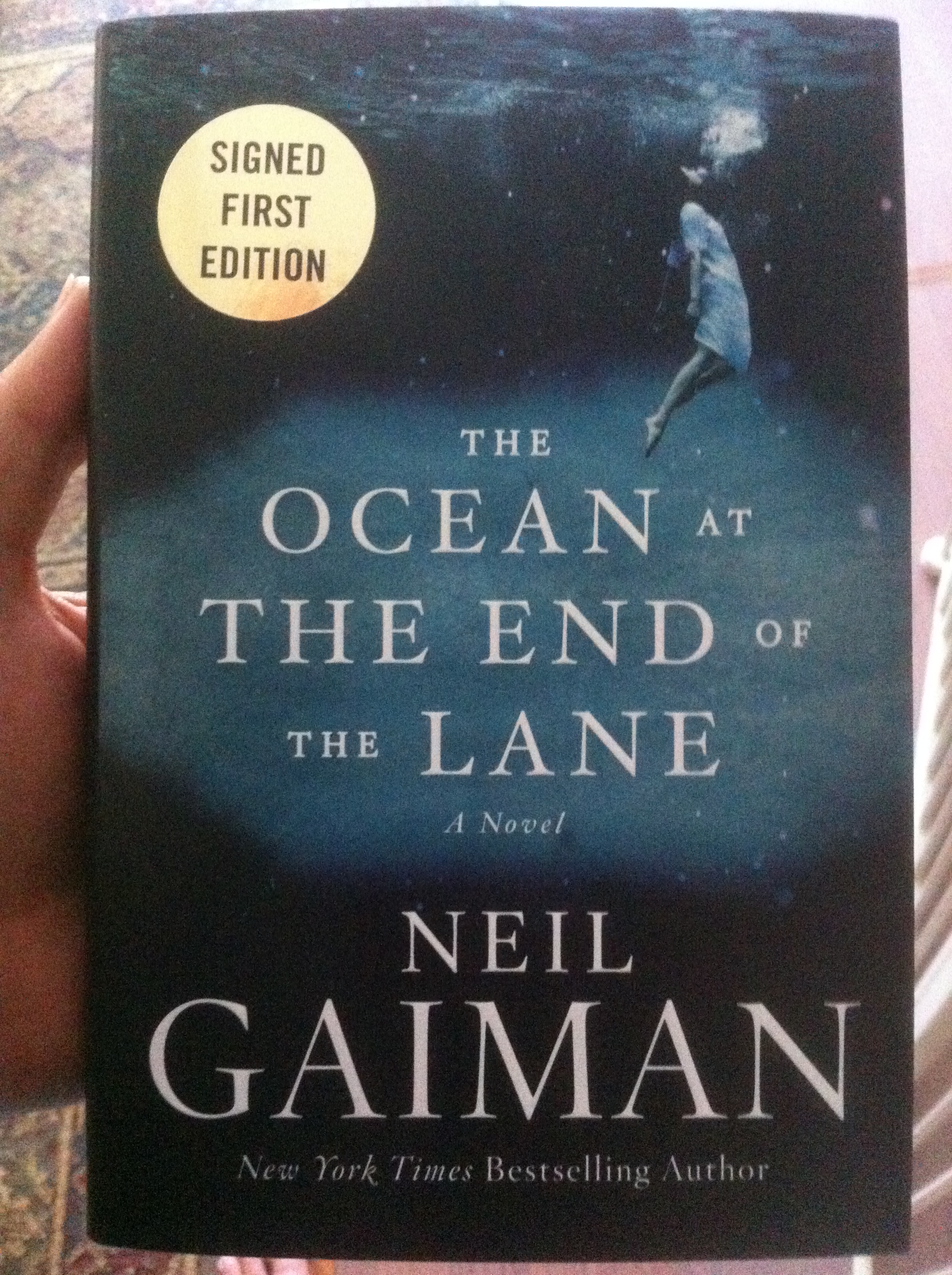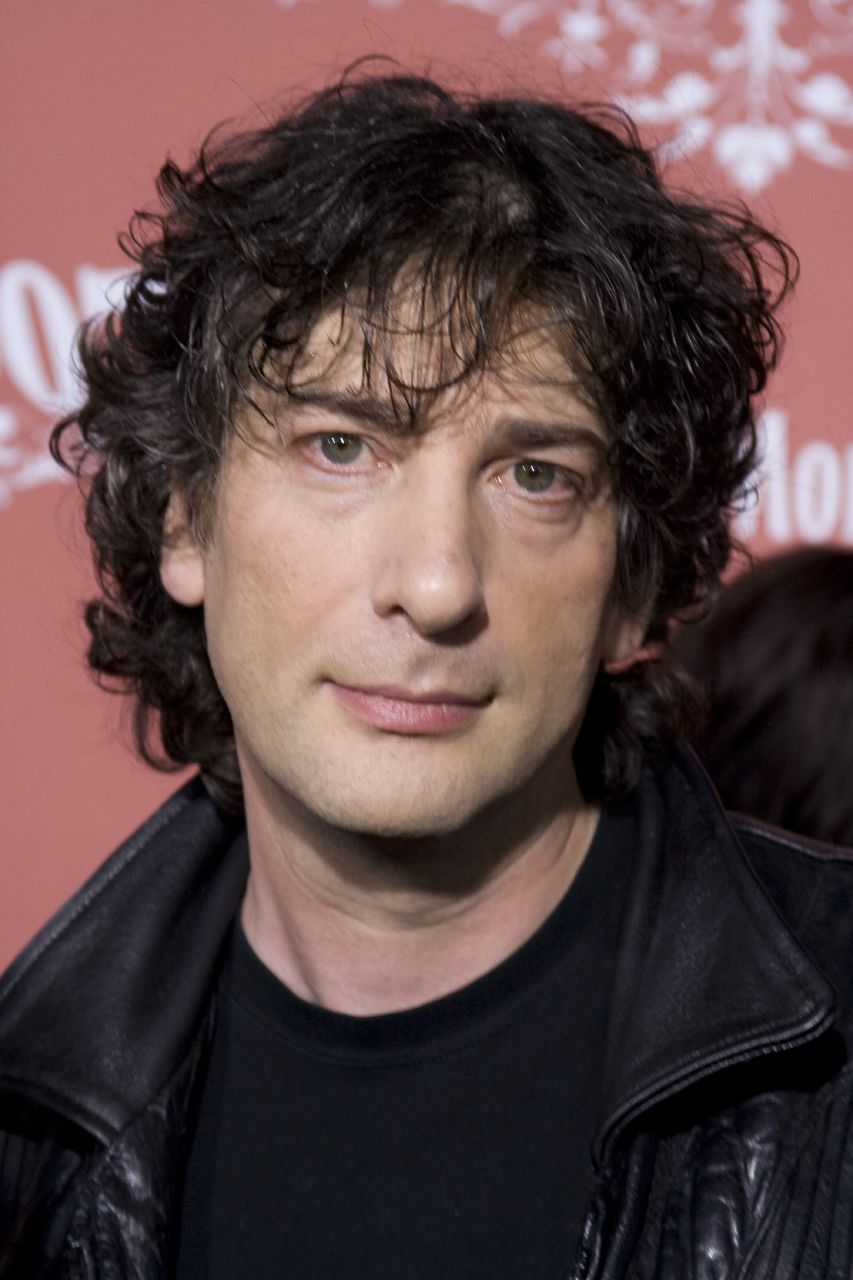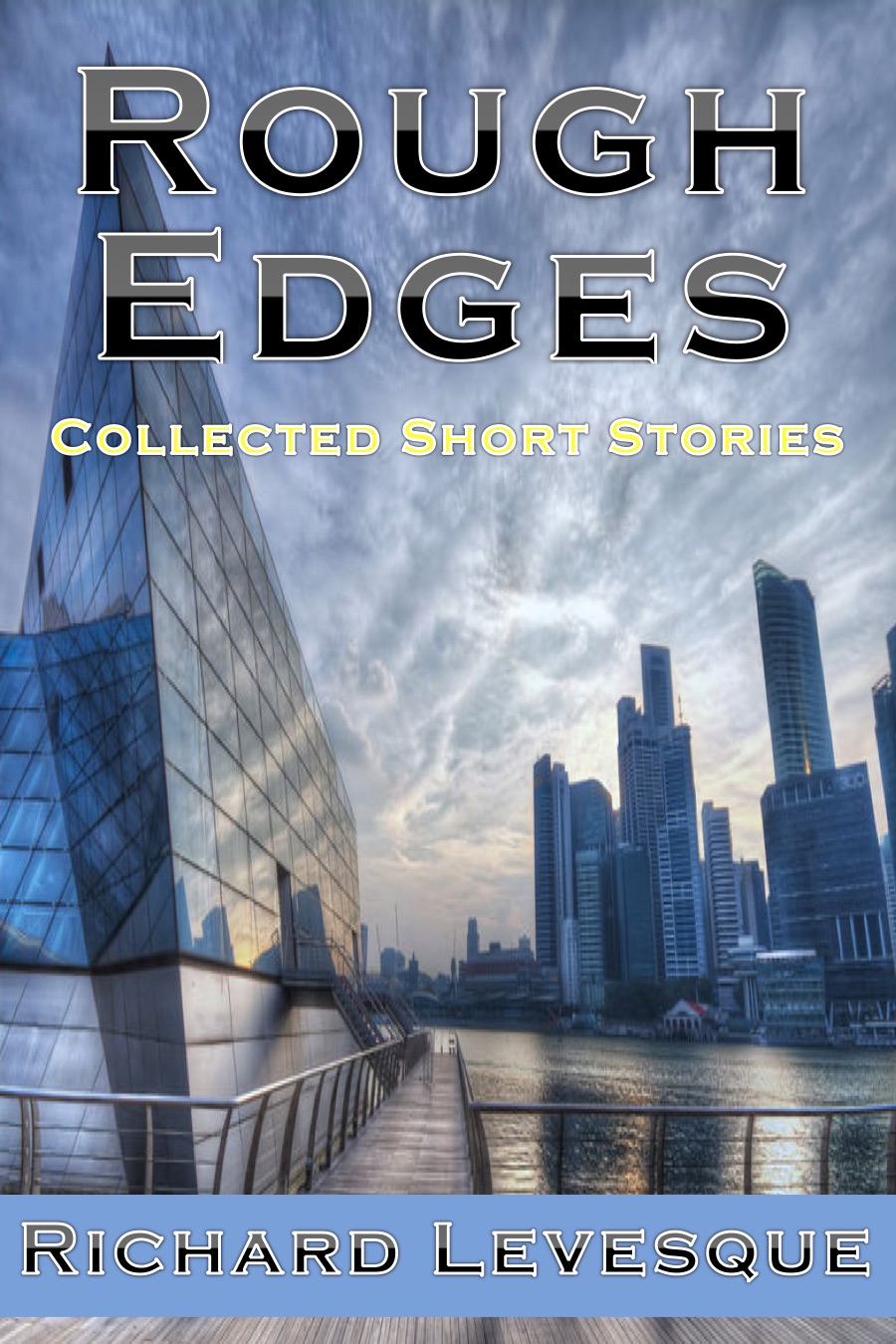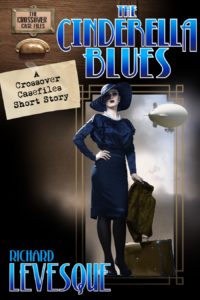Neil Gaiman’s The Ocean at the End of the Lane: A Review (Sort of)
Some critics and some unhappy fans have said that Neil Gaiman’s latest book is too short and too unremarkable, not worthy of rubbing covers with Neverwhere or American Gods; many latch onto the fact that this book started as a short story, and they shout “Aha! Gotcha, Gaiman! You should have kept it short. Clearly this is a money grab. You’ve lost your mojo.”
Tsk, tsk.
First of all, The Ocean at the End of the Lane is, in fact, on the short side. While I really would have enjoyed a Gaimanesque world I could get lost in, I also don’t think it’s fair to say that Ocean doesn’t measure up because it doesn’t deliver the same depth as earlier Gaiman works. The length for this particular tale is just right. Longer, it would have done different things—things that might have been just as good, or maybe even better, but they’d have been different, and wouldn’t have had the same effect. More on this later.
And, as to unremarkable, I also beg to differ. True, the book isn’t remarkable on the scale of other Gaiman books. But it’s remarkable in its own ways. More on that in a minute, too.
If you’re frustrated that Gaiman has never written a sequel to Neverwhere, then look to fan fiction for your fix. But if you’re looking for a touching, thought-provoking tale, invest a couple of hours in Ocean.
Last year, I read an interview in which Gaiman said he doesn’t want to keep doing the same kinds of books over and over; he doesn’t want to pigeonhole himself. We let other authors get away with that—Stephen King has branched away from the horror fiction he wrote in the 1970s, and I think a few people have gone along for the ride. J.K. Rowling has managed to leave Hogwarts behind, and many of her fans have followed her, forgiving her for dropping her wand and looking forward not just to new stories, but new genres altogether.
Gaiman has done similar things—writing fantasy for adults, creepy stories for children, graphic novels…even that Duran Duran book he started with. But some of the people who are fans of a particular book want him to keep delivering variations on it, the same way fans of a particular musician want each succeeding album to somehow echo the one they fell in love with.
I think the people who are simply fans of how Gaiman writes want to read what he writes, regardless of length or subject matter.
So, speaking of subject matter, The Ocean at the End of the Lane is about a boy surviving mystical and real-world traumas. It’s also about the same character as a grown man remembering those traumas. It’s about healing. And it’s about the way children look at the world and try to make sense of it.
Without spoiling anything, I’ll just say that Gaiman doesn’t provide big definitive answers or explanations for the things that happen to his narrator; he doesn’t need to. I think the point of the book is that children don’t know, and can’t know, what the big definite answers are. They make sense of things the best they can—some real things like run-over pets and child abuse and infidelity, and some less than real things like nightmares and shadows. And then there are the in-between things, like the reason a man might kill himself or the reason your sister seems to hate you when you’re seven or the necessities of having a nanny or borders in the house you thought was meant for you and your family alone.
What’s remarkable about this book isn’t the depths of its characters or the intricate weaving of plot and sub-plots that adds up to a profound whole. It’s the way Gaiman and his narrator show readers how children think and feel, how they hurt and heal. And it’s also about how, as adults, we sometimes have to revisit our childhoods to help us figure out the adults we’ve become. In real life, we can’t—not really. We can remember things, but we order those memories with our adult minds. In this book, Gaiman manages to show what it would be like for an adult to really revisit those things, to understand them the way they really happened, and to grow and heal the adult self in ways that couldn’t otherwise happen.
If the book had been longer, its length would have begged more explanation of the story’s mysteries, and it would have lost the sense of a child’s incomplete understanding of the world—not quite innocent, but not yet cynical. As it is, the book captures both the child’s sense of wonder and the adult’s amazement that he or she was ever capable of such wonder.
It’s not a perfect book, but I can’t help but feel that if readers let themselves fall into the world of the novel, they’ll find it works a particular kind of magic on them that makes the trip, however brief, entirely worth it.
American Gods Childhood Duran Duran fan fiction J.K. Rowling literature Neil Gaiman Neverwhere Stephen King The Ocean at the End of the Lane









3 Responses
I liked this book a lot. There was something a touch Sandmand-ish about it, and more adult than most of his YA books.
This was an engaging story that allowed me to connect with the characters. Neil Gaiman wrote it so of course there were parts I didn’t fully understand. That’s part of his appeal. He leaves me wondering. He seemed to be exploring the good–and bad–that lies within. And the innocence with which we’re all born. Maybe it’s that innocence that makes us all inherently worthy. We are here because we were summoned and we do our best to play the hand we’re dealt. Hopefully, as we play that hand, we gain wisdom that allows us to deal a better future for those who follow.
Thanks for getting in touch. I agree that the book says a lot (in between the lines) about innocence. Glad to hear you enjoyed it.
Comments are closed.